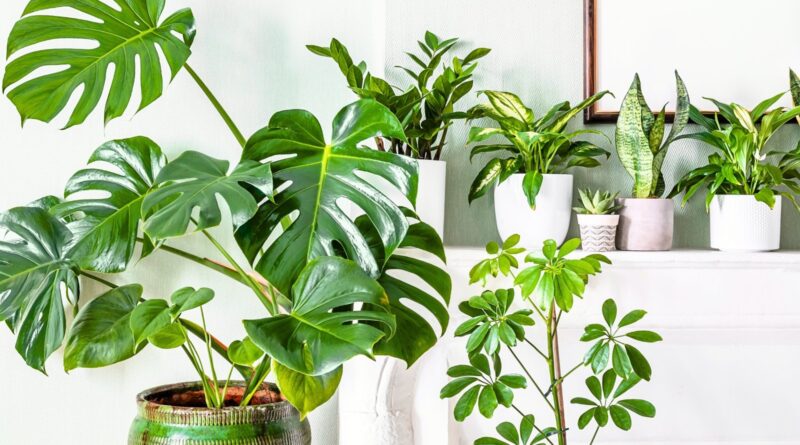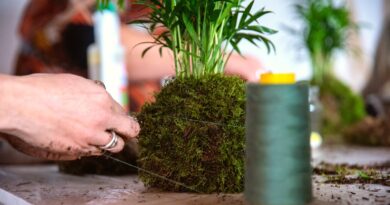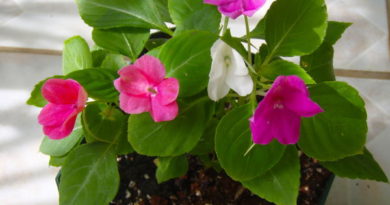9 Houseplants That Will Help You Sell Your Home
When you’re selling your home, it’s important to make it feel as bright and welcoming as possible to potential buyers. You’re effectively selling a dream, and that starts with a solid first impression. While there are many tricks to creating this feeling, one you may not have considered is houseplants.
As unlikely as it may seem, real estate experts generally agree that houseplants can make a huge difference in the sale of a home. For starters, they make a space feel fresh and add a personal touch that is often missing in regular staging. Taller trees also add a sense of scale and a modern feel to older homes. Plus, as houseplant lovers know, healthy plants mean plenty of bright light – a big selling point.
If you’re looking for indoor greenery to help you make that sale, these are the plants to look out for. I would choose a few rather than one or two to bring an organic and authentic feel throughout the house.
Peace Lily


Peace lilies are the perfect medium-sized houseplant to stage your home for selling. The cascading foliage adds an elegant, organic feel to a room, with a glossy sheen that catches the light from nearby windows. Find one in flower for a contrast of color too.
Peace lilies don’t mind lower-light areas initially. This makes them ideal for bedrooms, bathrooms, or dining rooms that receive less natural light. Keep them well-watered to stop the leaves from flopping over.
Monstera


For a slightly larger leafy plant, Monstera deliciosa is a great choice. This is one of the most popular (if not the most popular) houseplants on the market. The large leaves are a wonderful focal point that aligns your home with modern trends, even if the architecture says otherwise.
Place your monstera in high-traffic areas for the biggest impact. Living rooms or bedrooms with empty corners are ideal. Use stands to raise the plant closer to eye level, managing height and scale to improve your design. If the leaves are large and toppling over, add a stake or moss pole to keep them upright and looking healthy.
African Violet


When selling a home, it’s best to avoid clutter on surfaces like countertops or shelving. However, you don’t want them to be empty, either. A small houseplant like an African violet adds a personal touch that won’t take up too much space. This maintains a clean and minimalist look without the impersonal feel.
African violets are ideal for kitchens or living rooms – anywhere that would benefit from a pop of color. Give them plenty of bright light (but not direct sun) to ensure those colorful blooms last as long as possible. When watering, avoid splashing the leaves, as this can cause unsightly dots on the fluffy foliage.
Snake Plant


The previous plants are fitting for softer, organic interiors. If your home has a more modern, angular look, a snake plant will fit right in. This wouldn’t be my first choice for most homes due to the sharp leaves and stiff structure, but it’s the perfect complement to the clean lines and geometric shapes of modern apartments.
Another benefit of snake plants is their ease of care. These plants are incredibly tough and seem to look better with less attention. If you’re not going to be in the home often, you won’t have to worry about a snake plant dying on you.
Pothos


If you don’t have much surface space but still want the benefits of houseplants when selling your home, try pothos. The cascading vines look great in hanging baskets, creating a cozy and personal feel. You can also place pots on tall unused shelves to hang downwards or train the vines up a moss pole for a larger feature plant.
When you’re purchasing a pothos for staging, choose a plant with long stems. While they do grow quickly, small plants won’t grow fast enough to create a full cascading effect to your home. If you have a friend with a pothos, snip a few long vines and place them in a vase to achieve a similar effect. As a bonus, you can replant them once they develop roots.
Bird of Paradise


It’s hard to deny the impact that floor-to-ceiling houseplants have on interior design, a huge benefit when selling your home. To fill gaps in the corners of living rooms and make a big statement, look for a mature bird of paradise. The massive leaves and upright shape add elegance to any room. And if you’re lucky, you may even find one in flower.
Use these tall plants as the focal point in living rooms or bedrooms. I have mine raised slightly on a stand to give it that true floor-to-ceiling feel. They perform better in brighter light but can survive lower light for short periods. Also, keep up with watering and maintain humidity to stop the leaves from splitting.
Fiddle Leaf Fig


Along with the monstera, the fiddle leaf fig is one of the most recognizable and beloved houseplants to help you stage and sell your home. The glossy leaves have a unique shape and impressive size, but that’s not all this tree has going for it. Fiddle leaf figs also grow to ceiling height and draw the eye upwards, making your home feel bigger.
The only trouble with fiddle leaf figs is their fussiness. If they are moved to an environment drastically different from what they are accustomed to, they will respond by dropping their leaves. Ensure they get plenty of bright light and enough water once you bring them inside to avoid stress and subsequent leaf drop.
Orchids


Fresh-cut flowers are often used when selling a home to bring the outdoors in and add a pop of color. Unfortunately, cut flowers don’t last very long. You’ll likely be staging your home for far longer than the seven days it takes for your vase to wither.
Instead of a bouquet, opt for living blooms that won’t die off – orchids. They offer the same benefits but last much longer. Choose epiphytic orchids that are happy with higher humidity and infrequent watering. Place the container in a decorative pot cover that matches the color of the blooms to boost your design.
Lavender


When staging a home, you need to consider all the senses, including smell. Adding a few lightly scented plants around your home creates a fresh fragrance that buyers notice when they walk through the door. And what smells better than lavender?
I wouldn’t consider lavender a traditional “houseplant.” But lavender will live in an indoor container for a couple of months if it’s given enough direct sunlight. To boost the soothing scent, use some of the flowers and foliage to make your own potpourri, spreading it to all corners of your home.
What Not To Use


While you may think all houseplants are good houseplants in staging, there are a few I would avoid.
Skip fussy plants that start to look sad without a few days of attention. The first that springs to mind is the weeping fig (Ficus benjamina), known for dropping leaves and causing a mess at the slightest sign of stress. Ferns are another high-maintenance choice I would avoid unless you have the perfect environmental conditions to keep them happy.
Also, cross any spiked cacti or succulents off the list. They don’t look particularly welcoming and may become a hazard in high-traffic areas, especially if there are children around.
I am all for the indoor jungle aesthetic, but if you’re trying to sell your home, too many houseplants can become an eyesore. Keep it simple with a few houseplants to complement the space, not overwhelm it.
Finally, if you have existing houseplants that look worse for wear, don’t use them to stage your home. Wilting leaves and sparse growth detract from the design, becoming a focal point for all the wrong reasons.
Stick with low-maintenance houseplants that always look good to ensure your home always looks good, too.




